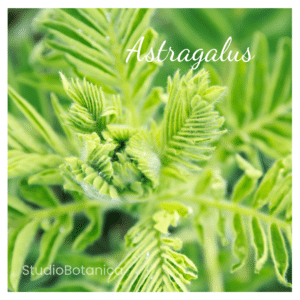
What are Adaptogens Herbs?
"Roots, Fungi, Root Bark, Leaves & Berries – a special class of botanical wonders known for helping us raise the floor of our resilience to various stressors in our lives. These herbs found in tea, tonics, tinctures, powders, capsules, and more are not intended to replace foundational health strategies, yet can become your ally in high times of stress."
above is from my dear friend in Maine, Deb Soule from Avena Botanicals (www.avenabotanicals.com)
Adaptogenic herbs boost energy, restore vitality, and help raise the body’s ability to deal with the stresses of modern life ~ and, as an added bonus, they have no harmful side effects. They are also the prime herbs used for increasing life force and one’s quality of life as one ages !
An Adaptogen can be any substance or lifestyle change that helps one adjust or adapt to our modern day environment (such as heating or air conditioning), but the term is most often used to describe a group of herbs that have a long history of promoting longevity and increasing the overall strength and resiliency of our bodies.
The term adaptogen is fairly new and won’t be found in any of the older herb books ~ those written before 1990 ~ and we may not find the word in a dictionary, either. Yet it’s a common term amongst herbalists and holistic practitioners and is used to describe a highly regarded and well-known group of herbs. The term was coined by a Russian scientist, Dr. Lazarev, in the late 1940’s, and was used to describe any substance that:
(a) had a normalizing and balancing effect;
(b) was non-toxic and didn’t create any harmful side effects; and
(c) worked by a ‘non-specific’ or more generalized action to increase resistance to illness through a wide range of physical and biochemical factors.
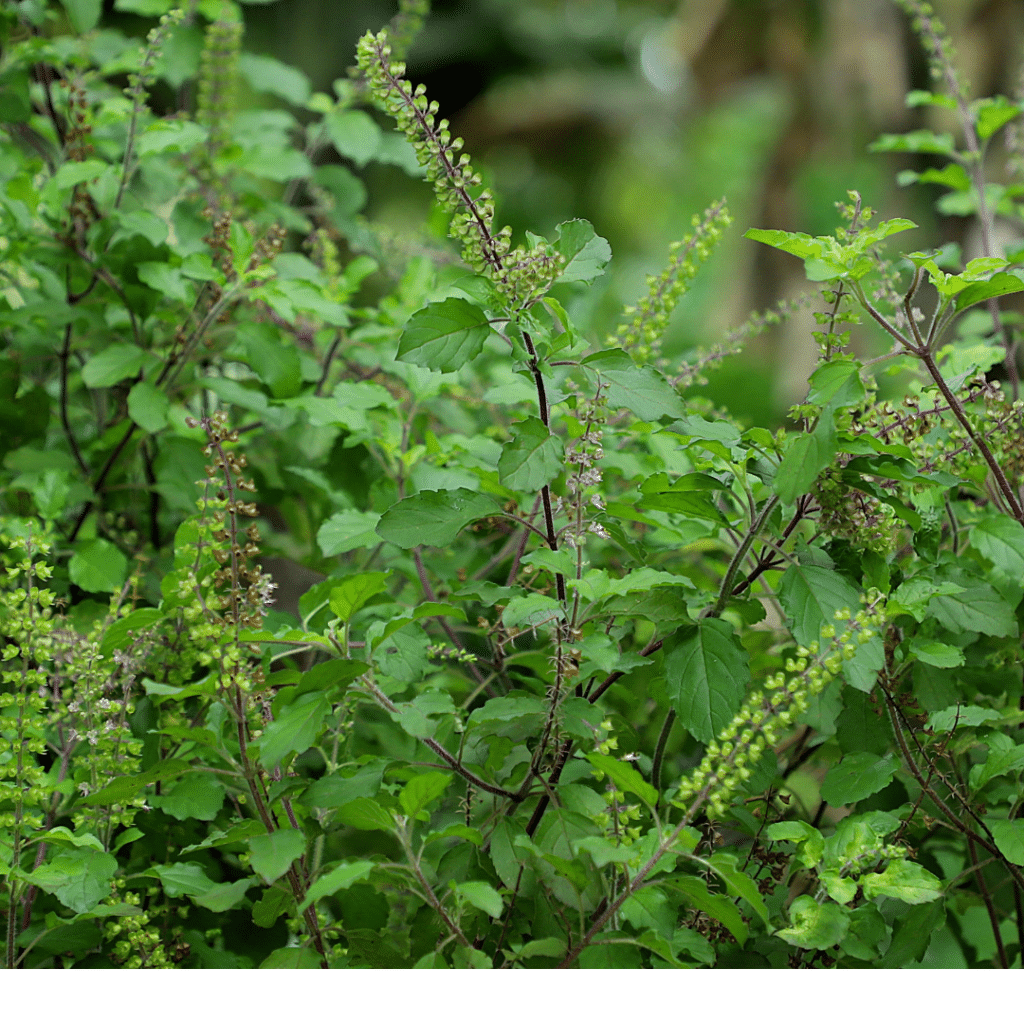
Holy Basil
Dr. Lazarev’s protégé, Dr. Brekhman, was a holistically minded scientist with an interest in herbalism. Thankfully for us, he expanded Lazarev’s work by centering his research on herbs that have a history of ‘adaptogenic’ like qualities. Dr. Brekhman studied hundreds of herbs to see if they had adaptogenic properties but ended up focusing most of his research on Electheroccoccus senticosus (Siberian Ginseng), Rhodiola, and Panax and Asian varieties of ginseng. He conducted literally hundreds of studies on thousands of people (factory workers, truck drivers and athletes, primarily) that proved there were herbs with the unique ability to help the body adapt to the stresses of modern life, improve energy and stamina, and increase one’s adaptability to their environment.
Adaptogenic Herbs for Stress
Adaptogenic Herbs for Stress are identified by their non-specific, broad health benefits. They increase the body’s inherent life force, increase stamina and endurance and improve the overall quality of physical well being. By definition, adaptogens are non-toxic and have no side effects (other than the side effect of good health) even when used over a long period of time.
In Western or American Herbalism, herbs that were restorative, tonifying, and rebuilding to the system were classified as Herbal Tonics and were used to treat a wide range of imbalances as well as to restore and maintain good health. Though tonics are not as appreciated as they once were, western herbal tonic therapy was at one time the foundation of many herbal treatments in North America ~ the adage was treatment from the foundation up by tonifying, supporting and building life force and most illnesses would improve or disappear.
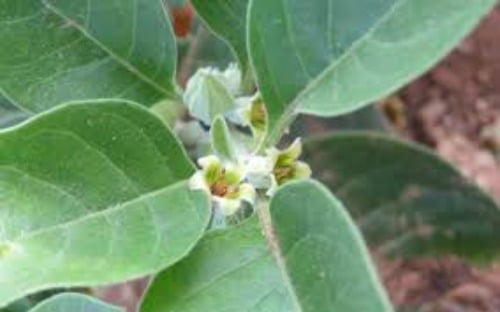
Ashwaganda
Adaptogens typically have 3 criteria:
- Non Toxic: They must be non toxic and cause minimal negative disturbances in the physiological functions of the body
- Generalized Action: They are non-specific in action and have a more generalized action in the body. In other words, these herbs are not generally indicated for one specific condition or illness but rather tonify and build the entire system.
- Normalizing and Balancing: They must have a normalizing effect on the body, helping to restore balance and homeostasis. Can be used for either/or situations such as high or low blood sugar, or high or low blood pressure.
Adaptogenic Herbs for Stress:
- Restore balance
- Increase energy
- Increase immune response
- Improve homeostasis
- Improve brain and memory function
- Balance and normalize overall body energy and health
- Improve stamina
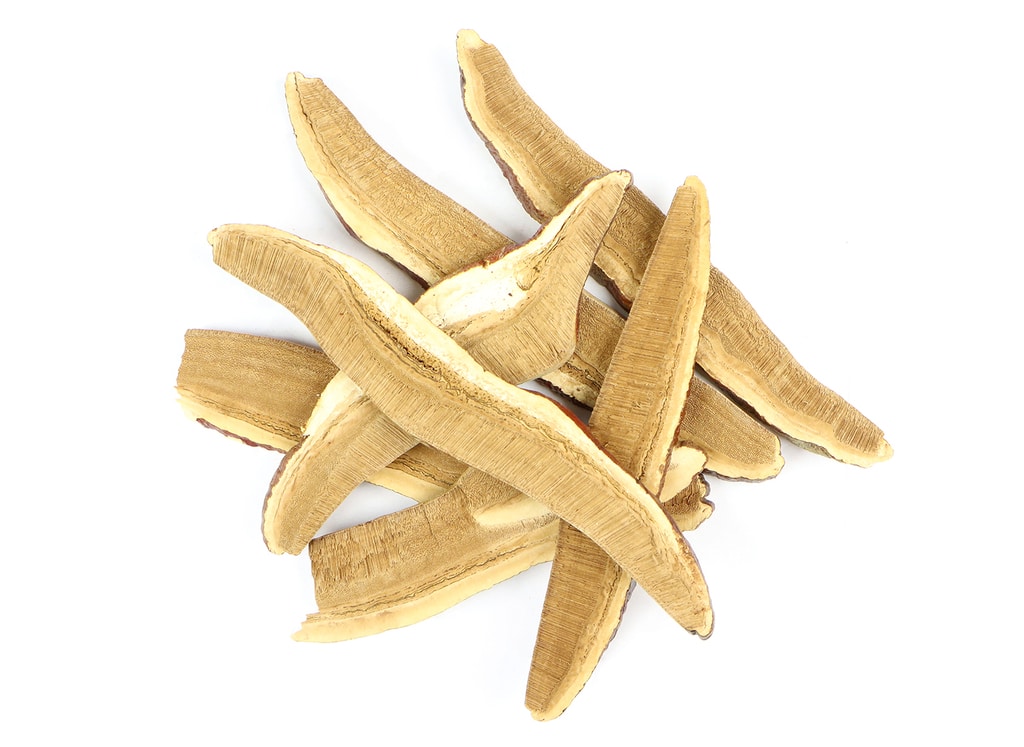
Reishi Mushroom
How do adaptogenic herbs for stress work ?
Here’s a few of the theories of how they are thought to work :
- They enhance the ability of enzymes to transform glucose into energy
- They activate the synthesis of proteins and nucleic acids
- They build and support immune health through numerous immuno-enhancing mechanisms
- They are antioxidant rich and thus limit the number of free radicals in the system. Excess free radicals roaming in our systems are one of the key factors in age related disease.
- They work by supporting endocrine gland function and have a positive influence on the secretion of hormones and other chemicals produced by the pituitary, hypothalamus, and adrenal glands
*Please note, while adaptogens and tonics are generally classified as safe, people can have individualized reactions to anything.
If you note a stomach upset or an itchy throat or eyes shortly after ingesting any herb (or anything for that matter), discontinue use, drink several glasses of water, and, if you have it handy, add lemon to the water (lemon helps detoxify the system).
If symptoms don’t improve, wait for 10 minutes or so.. and consult with a healthcare professional immediately if they worsen.
For all who are a sensitive person who tends to experience allergic reactions to several different things then it’s always best to be respectful of this and to slowly introduce new things .
Loading Dose:
I always suggest starting with 1 dropperful of tincture 3 x daily. Suggest that people pay close attention to any adverse reaction.
On the 2nd day, if no odd reactions noted, take 2 dropperfuls 3 x daily. Notice and pay attention. This is known as 'the loading dose' ~ the actual therapeutic dose, is 3 dropperfuls 3 x daily for a period of time. With this therapeutic dose, the herbalist monitors the client + makes adjustments as warranted.
Each of us may react slightly differently to each herb so that's where the 'art + science' of herbalism' is in true form!!
Adaptogenic Herbs for Stress:
There is quite a list -- Here are some of my favourite herbal allies with a brief description.
Ashwaganda (Withania somnifera)
A restorative tonic, especially used to support people experiencing nervous exhaustion which can also include insomnia. This herb is slightly warming. Ashwagandha significantly can reducesstress and anxiety levels, is thought to reduce sleeplessness and fatigue, and reduce serum cortisol (a stress hormone) levels, compared with placebo in studies.

Astragalus (Astragalus membranaceus)
Revered for the ability to stimulate the body's energy, fight fatigue + prevent disease. It's used to protect the body from physical, emotional + mental stress by supporting the immune system. Astragalus has antibacterial and anti-inflammatory properties.
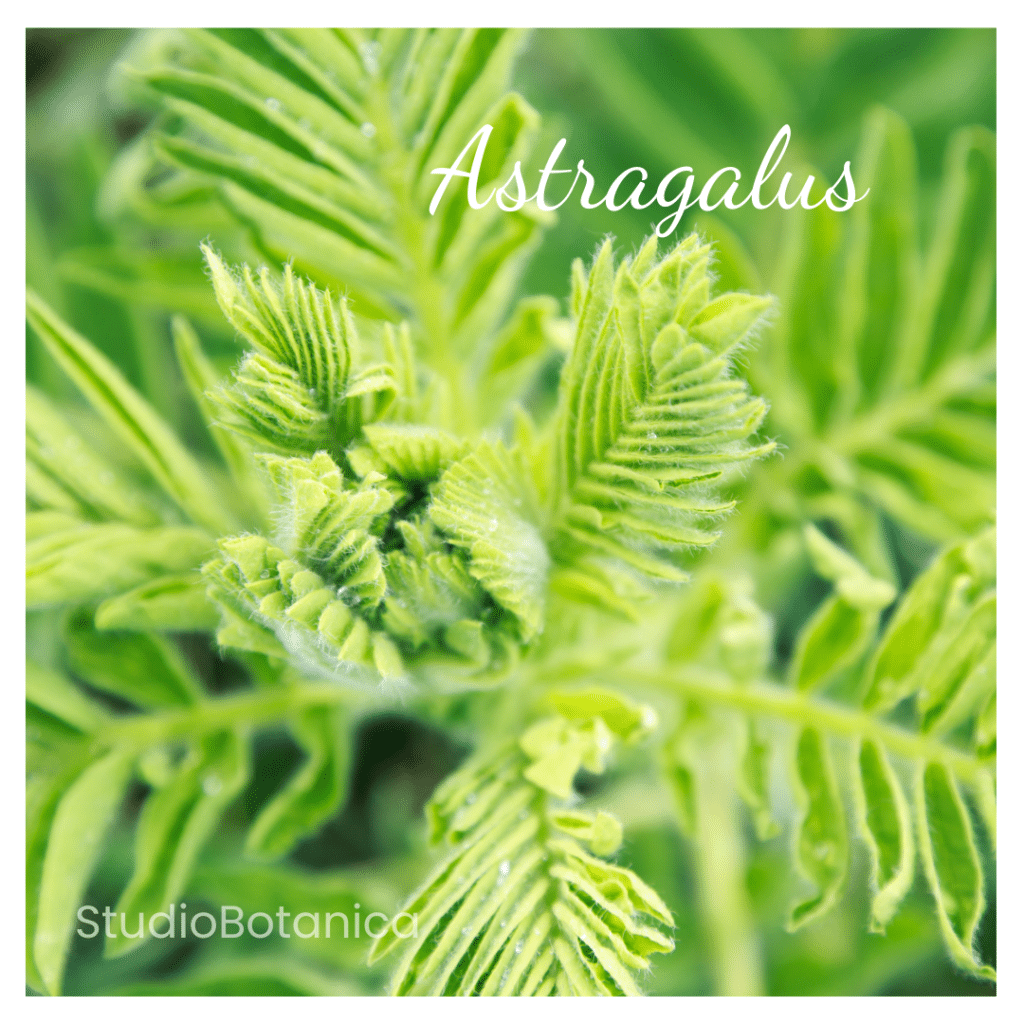
Eleuthero (Eleutherococcus senticosus)
This herb was called Siberian Ginseng, until recently. It is a gentle adaptogen that is appropriate for most people. David Winston reports that he uses it often for people who “work hard, play hard and hardly sleep.” Like other adaptogens, eleuthero supports the immune system and can be taken for extended periods of time.
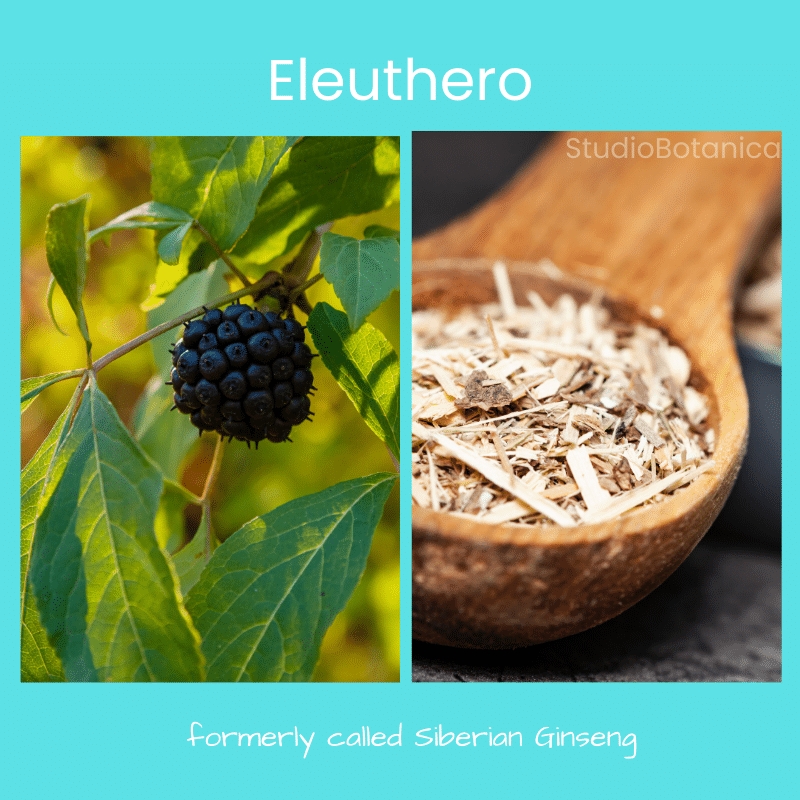
Ginseng Family (Panax ginseng + Panax quinquefolius)
Supports immune system function, helps to prevention of flu + upper respiratory infections when used often during cold + flu season. Supports the body dealing with physical stress.
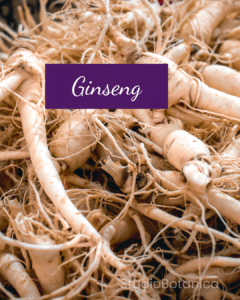
Holy Basil (Ocimum sanctum)
An uplifting herb for those with mental fog. It is also often used in those with significant fatigue. Many herbalists use it for anxiety. Chemicals in holy basil are thought to decrease pain and swelling. It's also believed to lower blood sugar in people with diabetes.

Reishi (Ganoderma lucidum)
Reishi mushroom has been used for immune boosting effects, for treatment of upper respiratory viral infections, + for reducing stress. Reishi mushroom has been used to help enhance the immune system, reduce stress, improve sleep, and lessen fatigue. Many believe that Reishi can assist with lowering hypertension. As an adaptogenic herb, reishi can play a very supportive role
when we are dealing with 'extra' stresses in our lives. Here's a link to my article about adaptogenic herbs.
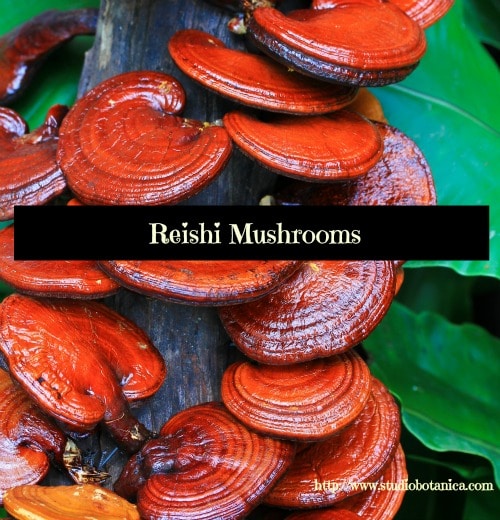
Rhodiola (Rhodiola rosea)
Helps to improve stamina + mental focus. Improves low mood, mood stability + insomnia. Helps to decrease the cortisol response to stress. Used to reduce the symptoms of generalized anxiety disorder. Rhodiola can support weight loss by helpint to boost metabolism, reduce stress-related cortisol, and can often help with appetite control. However, it should be used in conjunction with a healthy diet and regular exercise for the best results. This is a good one to check in with a qualified herbalist. NOTE: It can cause some jitters. It can interact with medications.
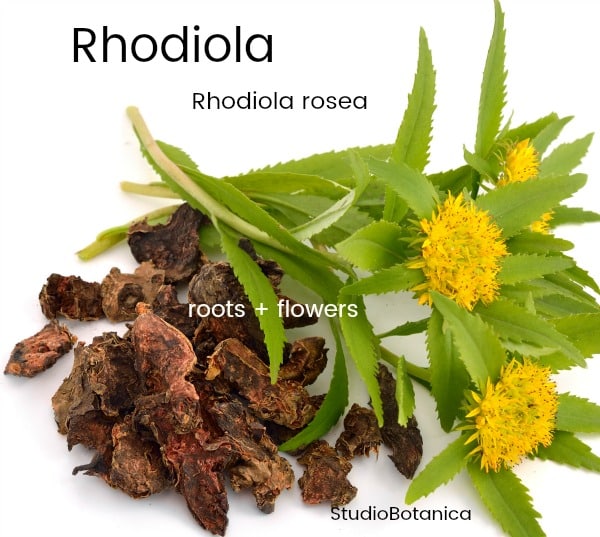
Rhodiola rosea
Shatavari (Asparagus racemosus)
An Indian herb that helps to restore energy levels in people who are wrung out and fatigued. Sometimes used in cases of female or male infertility, this adaptogen is also very nutritive and is considered an immune system tonic.
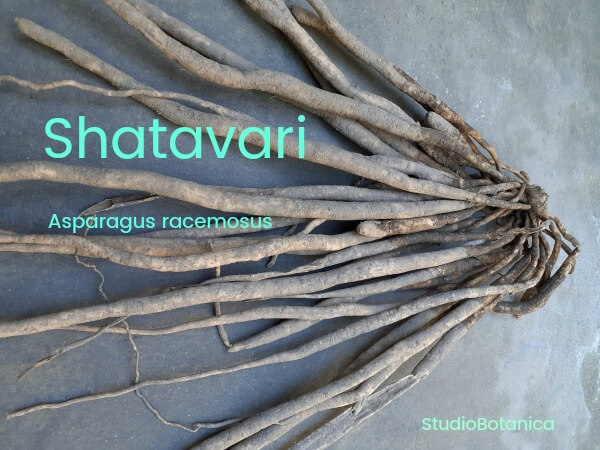
Schisandra (Schisandra chinensis)
It was found to increase physical stamina, provide protection from stress, and protect the liver from a variety of toxins.
Research + studies with Schisandra have found it is likely beneficial for improving concentration + endurance.
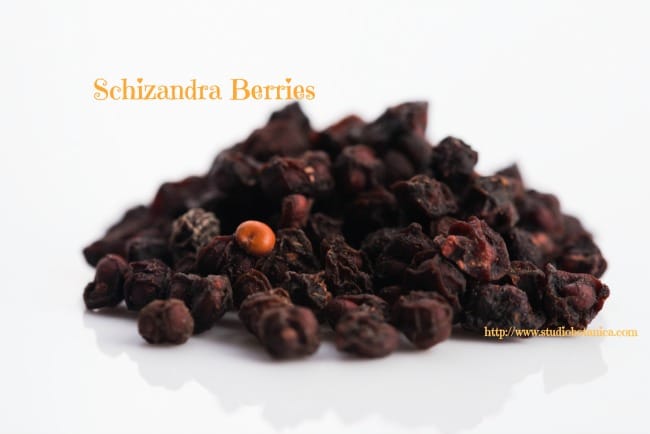
Schizandra Berries
Adaptogenic Herbs for Stress
Whether they are called Herbal Tonics, Rasayanas, or Adaptogenics, these are some of our most well known and beloved herbs, perhaps because they are restorative + rejuvenating + help people adapt to many of the stresses of modern-day life! Traditionally, over many years, these herbs have been incorporated into one’s meals, cooked into soups, sprinkled into food, or made into tonic drinks, syrups, and delicious spreads that were enticing to eat.
Of course, one can take them as capsules and tinctures as well ~ there are many fine adaptogenic and energy building formulas available in capsules and as tinctures ~ but most herbalists prefer to use these particular herbs as food rather than ‘medicine’. And there are many delicious recipes that one can make to entice one into taking these herbs on a regular basis.
Here’s one of my favorites from my course, The Science and Art of Herbalism.
Check it out here in Studio Botanica in this post Chocolate Goodness.
One of my "go to" sources for learning about adaptogens? David Winston is a renowned + very well-respected herbalist in the USA who has literally "written the book on adaptogens".
Here's the link to his wonderful research filled book: just click here.
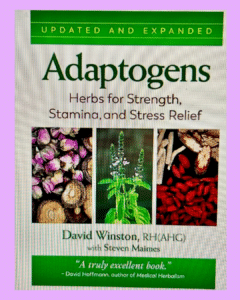
Adaptogens: Herbs for Strength, Stamina, and Stress Relief
Buy Now →There's one more -- ( I know that there are several... but my fave) It's by my friend Agatha Noveille --
It's called :Adaptogens: 75+ Herbal Recipes and Elixirs to Improve Your Skin, Mood, Energy, Focus, and More

Adaptogens: 75+ Herbal Recipes and Elixirs to Improve Your Skin, Mood, Energy, Focus, and More
Buy Now →Here's that link: here.
"The health and wellness benefits of twenty-three adaptogenic herbs, including Rhodiola, Ashwagandha, Maca, He Shou Wu, and Holy Basil. You'll also find more than 75 recipes for potions and remedies to improve sleep, mood, mental focus, immune function, stamina, and for general wellness and beauty. These all-natural, safe remedies fight the effects of chronic stress, while restoring your body’s balance, health, and vitality."
References:
https://becomelucid.com/blogs/news/list-of-adaptogens-and-their-benefits
Adaptogens! Our Plant Partners for Peace in Changing Times
I promise to share more information soon about how to help ourselves feel our best -- -- green wishes, Carol xo


Leave a Reply